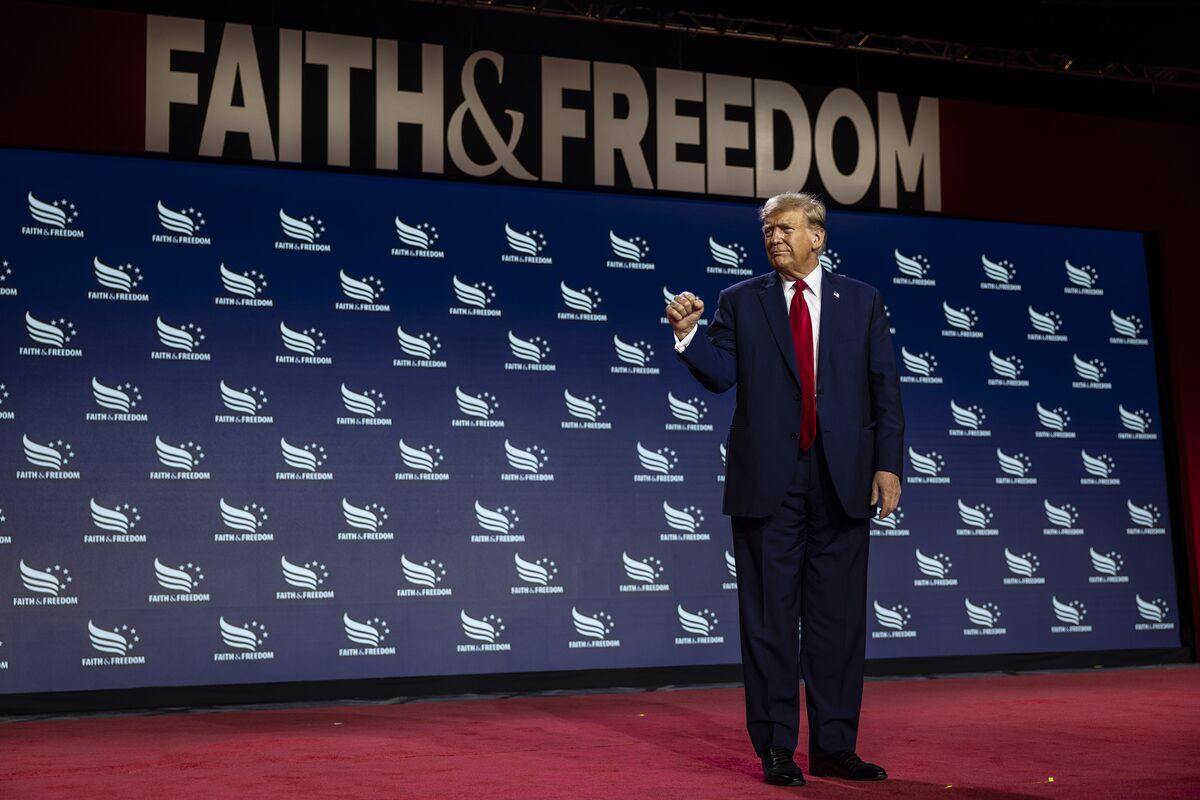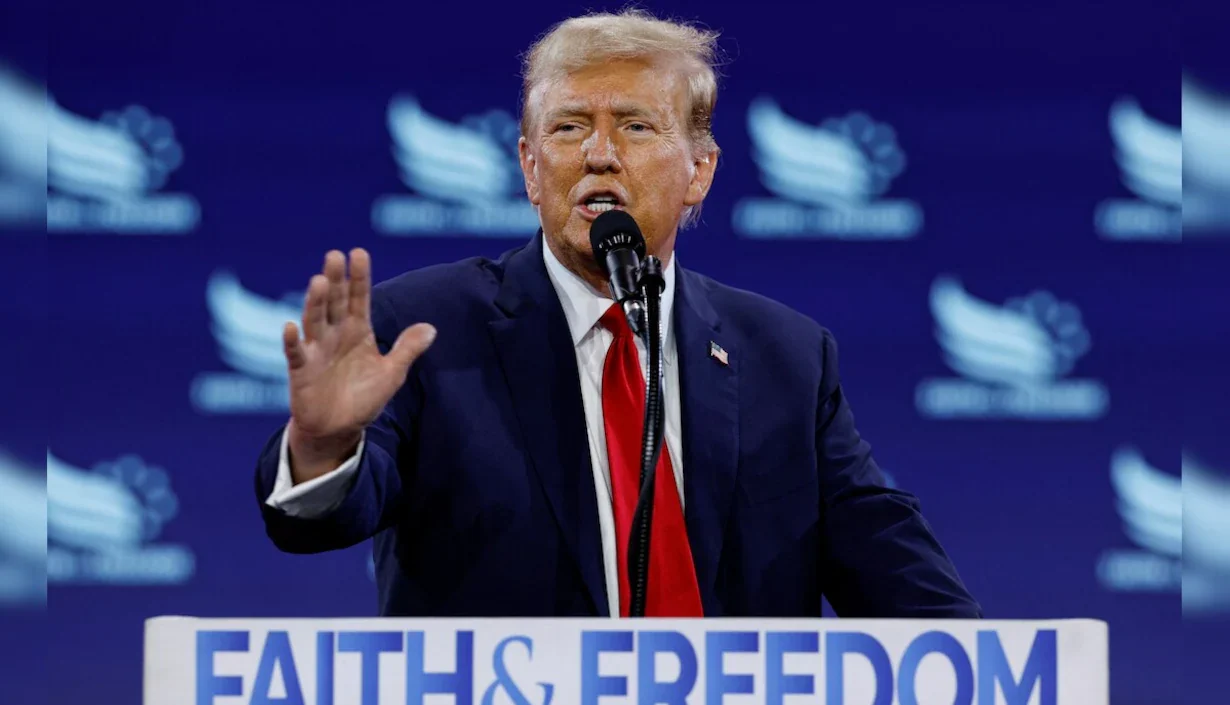Former US President Donald Trump made a fervent appeal to evangelical Christians during a Washington conference hosted by the Faith and Freedom Coalition, emphasizing the importance of their voting bloc in the upcoming elections.
Despite his own infrequent church attendance, Trump sought to rally support, highlighting his track record of fulfilling promises to the religious right, such as appointing conservative Supreme Court justices who influenced decisions like overturning federal abortion rights.
He expressed frustration at what he perceived as insufficient voter turnout among evangelicals, jokingly suggesting they skip voting in future elections if they did not mobilize in 2024.
Trump’s political strategy has heavily relied on evangelical support, a crucial factor in his previous electoral victories and a key demographic he continues to court for future elections. In both 2016 and 2020, a significant majority of white evangelical Protestants supported him, underscoring their influence in US politics.

Trump Appeals to Evangelicals for 2024 Election Support
At the conference, Trump pledged to vigorously defend religious freedoms, promising protections across various sectors, including schools, military, government, workplaces, hospitals, and public spaces.
To further solidify his commitment, Trump proposed establishing a federal task force aimed at combating perceived discrimination against Christians in the United States.
This proposal resonates within a broader societal context where a Pew Research survey indicated that nearly half of Americans believe religion’s influence is declining, a trend particularly concerning to conservative evangelical Christians who view maintaining religious relevance in public life as paramount.
Trump’s rhetoric positioned him against what he described as a concerted effort by the political left to suppress and marginalize religious voices from public discourse. He urged attendees to vote decisively in the upcoming elections, framing electoral participation as essential to counteracting these perceived threats and ensuring continued political influence for evangelical Christians.
His remarks set the stage for a competitive 2024 election, where he is slated to face off against Democratic incumbent President Joe Biden in upcoming debates.











































